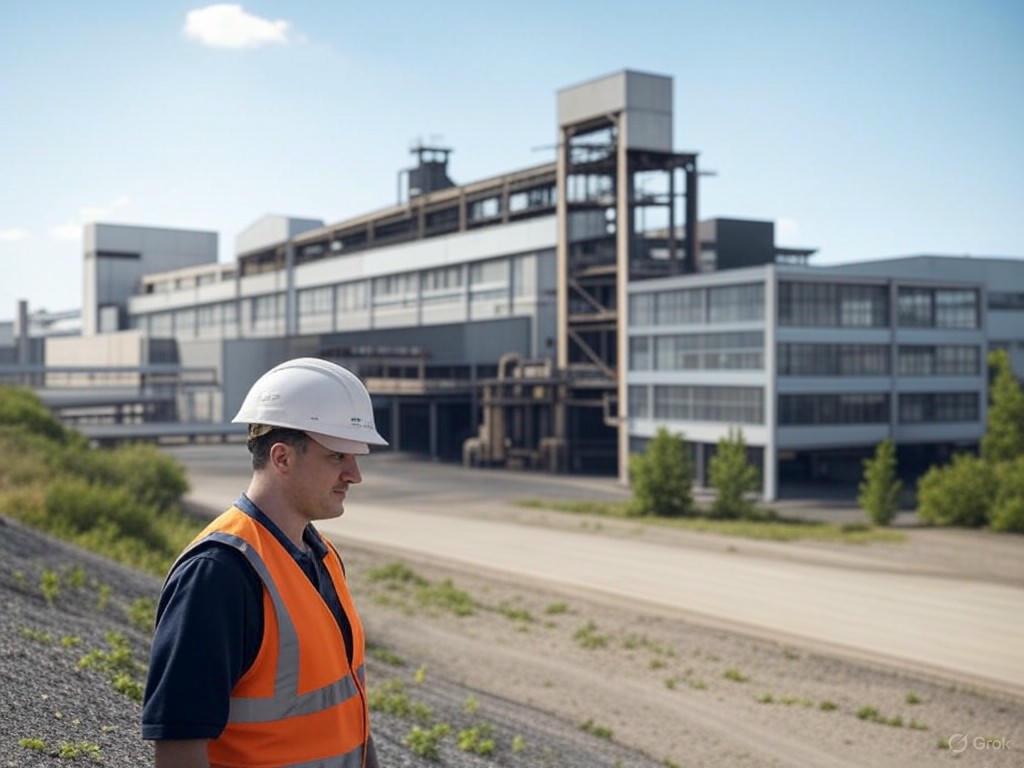ArcelorMittal’s Green Retreat: A Setback for Europe’s Eco-Industrial Goals
In a surprising turn of events, ArcelorMittal, one of the world’s leading steel producers, has abandoned its ambitious plans to transform its German manufacturing facilities into eco-friendly hubs. This decision, coupled with the potential closure of a major biofuels plant in Belgium, has sent ripples through Europe’s industrial and environmental sectors. The move raises critical questions about the feasibility of decarbonizing heavy industries and the challenges companies face in balancing profitability with sustainability goals.
The steel giant had previously announced intentions to overhaul its German plants, aiming to shift from traditional, carbon-intensive production methods to greener alternatives. This was seen as a cornerstone of Europe’s broader push to reduce industrial emissions and meet stringent climate targets. However, mounting costs, technological hurdles, and uncertain market demand for green steel have reportedly forced ArcelorMittal to reconsider its strategy. Insiders suggest that the company is now prioritizing short-term financial stability over long-term environmental commitments, a decision that reflects the broader struggles within the sector. The potential shuttering of the Belgium biofuels facility further underscores this shift, as it was expected to play a pivotal role in producing sustainable energy alternatives for industrial use.
This retreat is a significant blow to Europe’s green agenda, which has heavily relied on industrial giants like ArcelorMittal to lead the charge in reducing carbon footprints. The steel industry alone accounts for a substantial portion of global emissions, and innovations in green production—such as hydrogen-based steelmaking—have been hailed as game-changers. Yet, the reality of implementing these technologies on a large scale appears far more complex. Analysts point to a lack of government subsidies, inconsistent policy frameworks, and the high initial investment required as key barriers. Without stronger support, companies may continue to shy away from risky, albeit necessary, transformations. Additionally, competition from regions with less stringent environmental regulations poses a persistent threat, as firms like ArcelorMittal weigh the costs of staying competitive globally.
The implications of this decision extend beyond the company itself. Smaller firms and startups that were banking on partnerships with ArcelorMittal for green technology development may now face uncertainty. Moreover, the move could dampen investor confidence in sustainable industrial projects across Europe, slowing the momentum of the region’s green transition. Environmental advocates have expressed disappointment, urging policymakers to step in with incentives and clearer roadmaps to encourage corporate participation in decarbonization efforts.
As ArcelorMittal steps back from its green commitments, the spotlight turns to other industry leaders and governments to fill the gap. While the path to a low-carbon industrial future remains fraught with challenges, this setback serves as a stark reminder that ambition alone is not enough. Real progress will require collaboration, innovation, and unwavering support to turn Europe’s environmental vision into reality. For now, the continent watches and waits to see if this is merely a temporary stumble or a sign of deeper systemic issues in the quest for sustainable industry.


